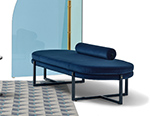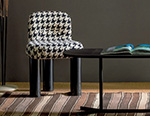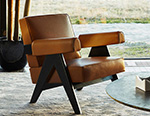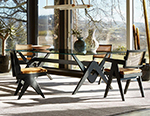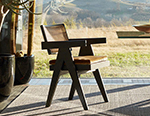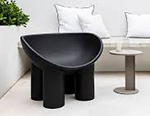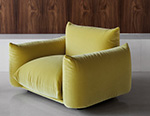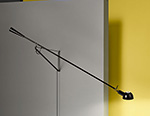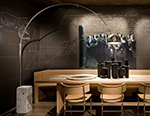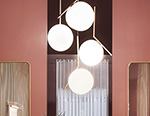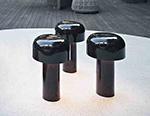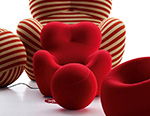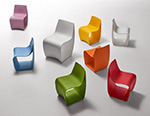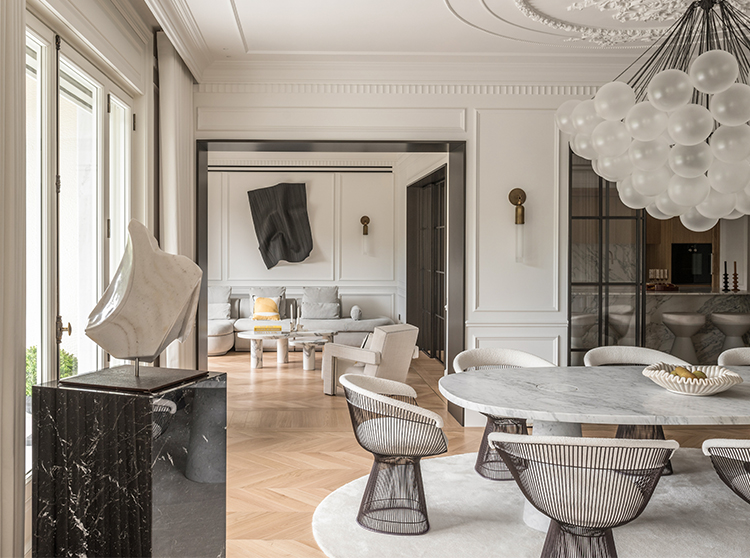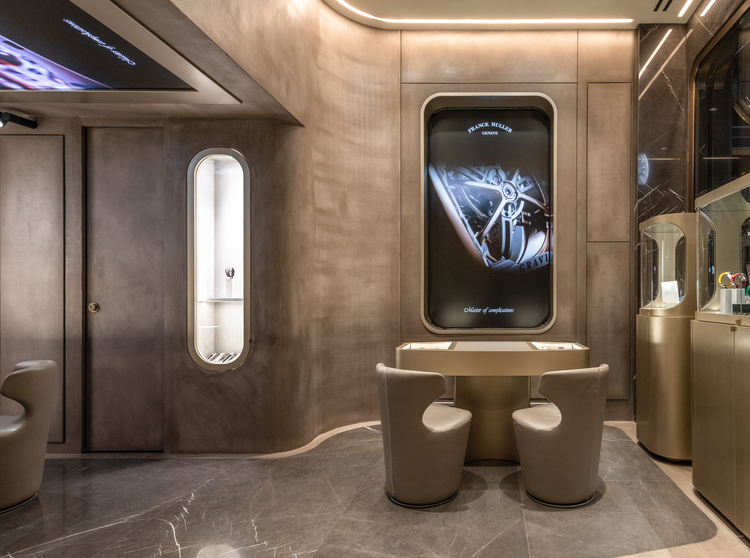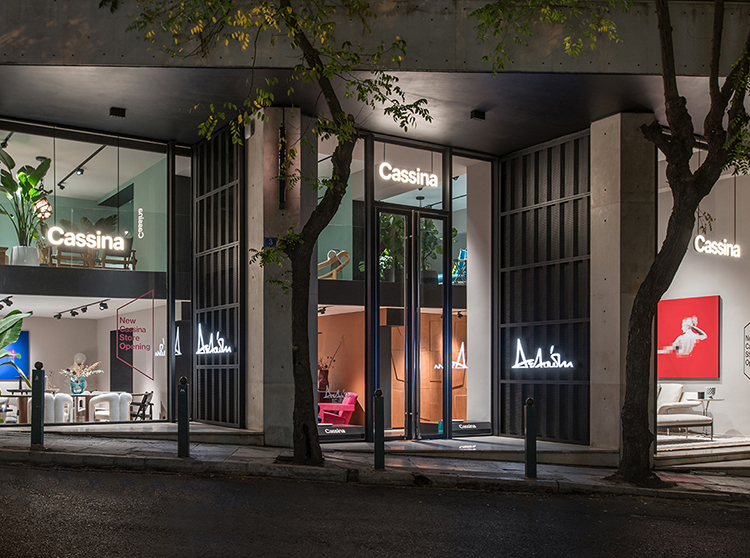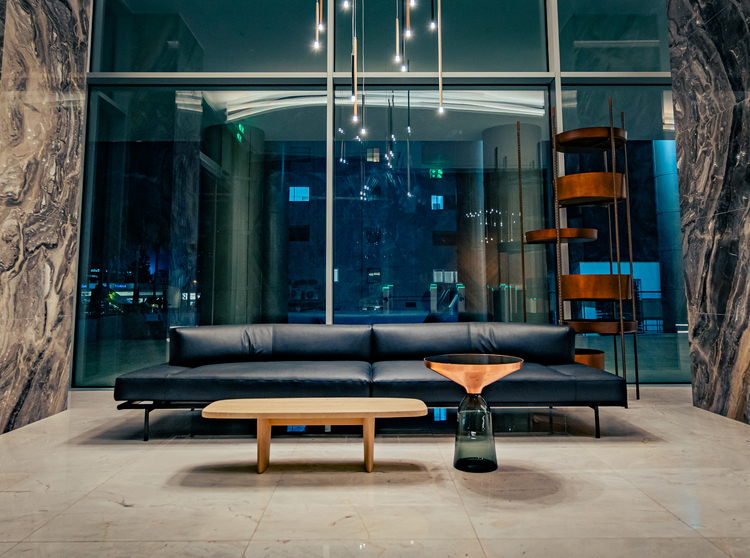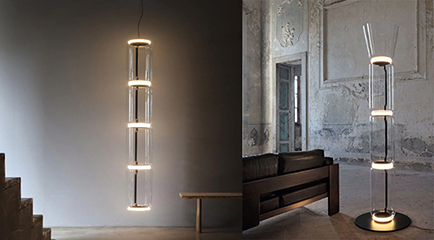design studio Garcia Cumini has created a customisable kitchen island for kitchen brand Cesar, which is informed by an ancient Chinese game of geometric shapes that can create “endless figures”. Named Tangram, Cesar‘s kitchen island consists of both curved and straight shapes that can be combined to create multiple configurations.
Users can use Tangram to create unusual, creative designs, with the unit either used as an island, placed against a wall, or even used as a solution to wrap around awkward corners.
The kitchen island also has a sink, tap, hob, a cabinet for storage, and an area designed for breakfast.
“Inspired by the ancient Chinese game of geometric shapes that can be combined with one another to create endless figures, this product echoes modular logic while avoiding linearity and introducing a new concept of sinuosity to kitchen design,” said Cesar. Tangram was also designed to adapt to user needs – in some areas of the design, the circular surfaces get smaller, which intends to give the user more space.
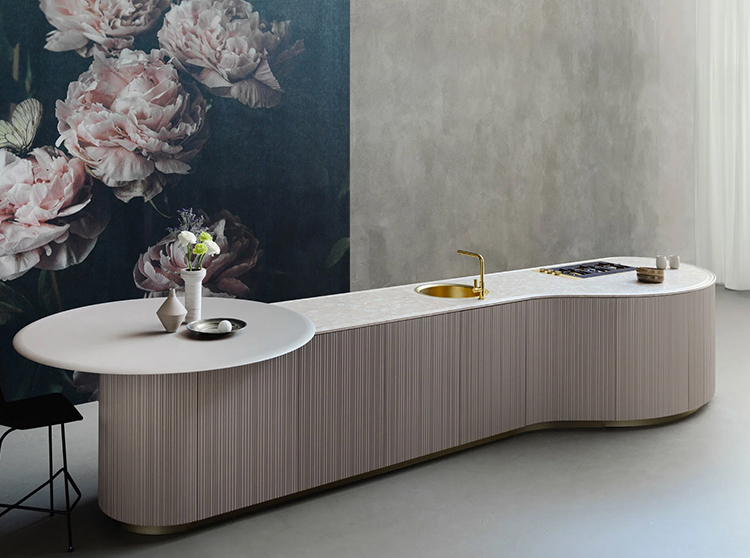
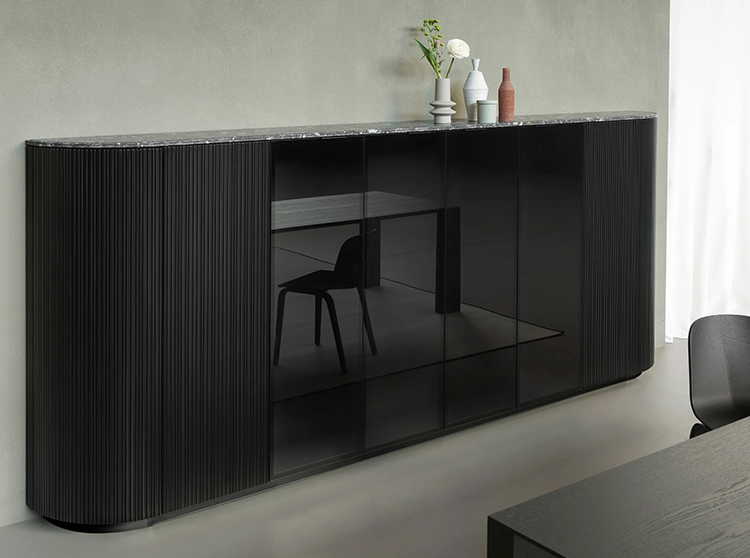
“Inspired by the ancient Chinese game of geometric shapes that can be combined with one another to create endless figures, this product echoes modular logic while avoiding linearity and introducing a new concept of sinuosity to kitchen design,” said Cesar.
Tangram was also designed to adapt to user needs – in some areas of the design, the circular surfaces get smaller, which intends to give the user more space.
“Adapting to various needs, its eccentric shapes aren’t made up of simple semicircles or portions of circles, but rather follow a soft and variable radius: in some points, for example, the shapes get smaller to take up less space and make it easier to get by,” said Cesar.
The island’s cabinet doors include the brand’s Oi and Accento handles, which were designed to fit into the doors’ three-dimensional grooves.
The design’s cabinet door can also include a special decorative detail upon request. An irregularly patterned element called Groove can also be added, which is made up of a sequence of vertical incisions designed to hide the joint between modules and “ensure a unitary perception of the arrangement”.
Tangram’s cabinet comes as a wall element or in a two-faced version, which can also be used in multiple spaces, including a living room or dining room.
“Tangram, designed for Cesar, allowed us to bring a part of our design concept to the world of kitchens as well. In addition to the multi-functional nature of the projects designed up until now with Tangram, we were also able to introduce a fluidity and dynamism that’s certainly rather uncommon in this sector,” said Garcia Cumini.
“The contours have been softened thanks to the newly designed modules, a challenging element in an industrial system, but the kind that Cesar loves to take on.”

